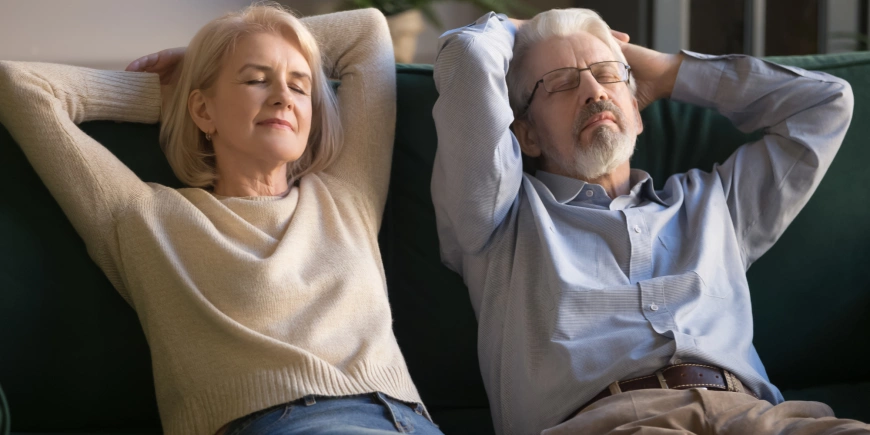Stress Less

I'm a registered nurse patient advocate. I help people navigate our dysfunctional disease care system. I mean, why call it health care? Chronic illness is rapidly on the rise and we spend billions of dollars on treating symptoms and not the root cause. So what can a patient advocate do to help a client with wellness instead of illness?
Let's focus on stress. I used to pay lip service to this idea that stress could be a root cause of chronic illness. As humans, we are innately adapted to handle acute stress. Just this past summer, I became a patient once more when my one remaining ovary (after a total hysterectomy for a rare ovarian cancer diagnosis) decided to twist on itself and die on the vine, so to speak. It was a bit stressful, I woke up at four in the morning with severe abdominal pain, told myself to go back to sleep and by six, I was doubled over in pain and STRESSED. This could be akin to the proverbial tiger that used to chase us down for a tasty meal in the days of old.
I used to pay lip service to this idea that stress could be a root cause of chronic illness. As humans, we are innately adapted to handle acute stress.
Once the problem was taken care of, that is my dead little ovary (bless!) was removed, the stress was gone. That's acute stress. But how many of us live in chronic stress and what happens physiologically when our bodies live in the constant adrenalin rush? Well, for one, it becomes a habit. It's like we become addicted to this powerful chemical. How do I know? Aside from the massive amount of scientific research out there to support this, I lived like this day in and day out for most of my life. I was always in ”fight or flight” and I had a nasty temper and the ability to bail on a moment’s notice to prove it.
But how many of us live in chronic stress and what happens physiologically when our bodies live in the constant adrenalin rush?
Most people who knew me well politely told me I was the most intense person they ever met. That was code for ”Girl, you need a chill pill”. Oh, and I had uncontrolled hypertension at age 40 to back up my ”intense” personality type. The cancer diagnosis made me take a deeper look at myself and I saw how damaging stress was, not only to my physical body but to my emotional and mental health as well. But what could I do about it? I'd been living like this for eons and until I got sick and saw the connection as I said, I paid lip service to it. It was a series of coaches who pointed me in a new direction and helped me see the possibility that I was well in spite of my physical problems because while I carry this physical frame, who I am is not my physical being. It’s like this, would you still be you even with cancer? Would you still be you if you lost a limb?
My point is: the YOU that is YOU never goes away (That was very Dr. Suess of me). So I asked myself, could I be ok in spite of hypertension, in spite of cancer, in spite of nasty, painful hemorrhoids that were, literally, so painful at times I could barely sit down? What I deeply saw was that yes, I could be ok with who I was in whatever moment or experience I was in and that any resistance to my experience almost always caused me to suffer more. I got comfortable in the unknown and didn't resist my experience so much. What happened after that is nothing short of miraculous. My hypertension dropped considerably, I am cancer-free, and my hemorrhoids rarely bother me. Not only that, but my lab values for inflammation are lower than they have ever been. Proof that I'm not chronically stressed 24/7.
Could I be ok in spite of hypertension, in spite of cancer, in spite of nasty, painful hemorrhoids? What I deeply saw was that yes, I could be ok with who I was in whatever moment or experience I was in...
So, while techniques and tools, like meditation to manage stress, can be immensely helpful they are just one more thing for my clients to do. What else could help them on their journey to wellness? I always coach my clients, with the intention to serve, a lot of love and presence, deep listening, and then I point them in the direction of their own innate well-being in spite of whatever challenging medical diagnosis they are dealing with. I point them to the possibility of living a chronically stress-less life even in the worst of times if only they could be less afraid of their in the moment experience. Pointing people in this direction seems to help them have their own insights. When my clients can see for themselves something new about their moment to moment experience, well, that changes everything!
